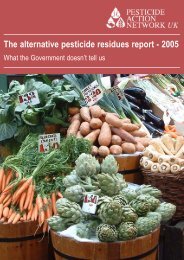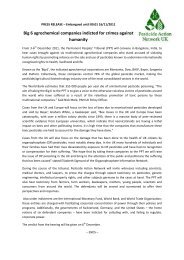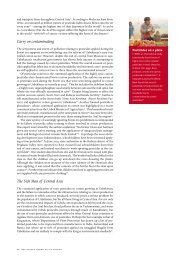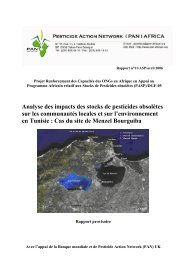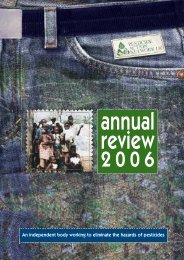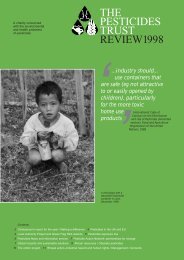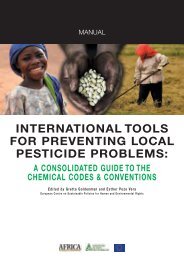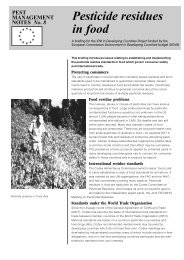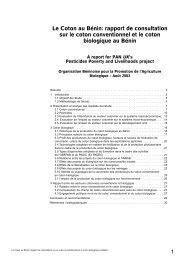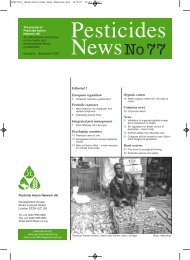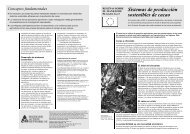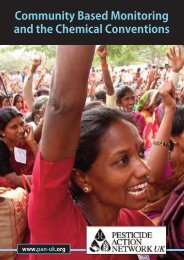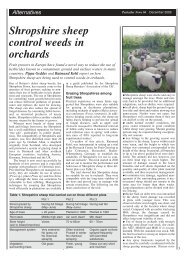Tanzania Multi Stakeholder Map - WebNG
Tanzania Multi Stakeholder Map - WebNG
Tanzania Multi Stakeholder Map - WebNG
Create successful ePaper yourself
Turn your PDF publications into a flip-book with our unique Google optimized e-Paper software.
environmental and human health hazards associated with hazardous chemicals<br />
and wastes they are exposed to; lack of financial mechanism; management and<br />
disposal of obsolete electronic equipment; inadequate capacity to monitor<br />
transboundary movement of HZW and other. Accumulation of obsolete pesticides<br />
and veterinary drugs; lack of proper treatment and disposal facilities for<br />
hazardous wastes e.g. incinerators and containment in sanitary landfills;<br />
reclamation of valuable material is done in open dumping sites; lack of technical<br />
know how on proper waste management and weak enforcement of the existing<br />
legislation. He proposed the following measures: to develop guidelines for<br />
management of HZW and other wastes; develop specific regulations for HZW<br />
and other wastes; promote law enforcement; create awareness on matter related<br />
to HZW.<br />
After the presentation participants asked that how rat-routes (i.e. illegal traffic)<br />
are controlled by the Basel Convention and the reaction was Basel Convention<br />
deals with legal movement only. The problem is with the chemicals and<br />
equipments that are brought in the country during the last phase of their life circle<br />
and hence become waste soon after. An inventory is underway for the nonworking<br />
electronic wastes in <strong>Tanzania</strong>. The custom officials at the borders are<br />
responsible to ensure that importation of articles is not on the last phase of their<br />
life cycle. It was further commended that issues of the porous borders is still a<br />
problem and therefore we need to educate and raise awareness to the local<br />
government leaders and people to watch out for that. The reasons for the<br />
obsolete pesticides were over importation, oversize donation during various<br />
epidemics, poor storage and poor storage practices. 70% of the stock belongs to<br />
the government and the remaining part belongs to private sector mainly the<br />
Cooperative Societies. Based on Basel Convention perspective, when you buy a<br />
product near its end of life and expire on your hands you become the waste<br />
producer. It was further queried that why pointing fingers to only customs officials<br />
only and the reaction was that they are government eyes on border points.<br />
It was asked that one objective of the Basel convention is to regulate and control<br />
importation of hazardous wastes. Has the Convention covered the grass-root<br />
level on its implementation and the reaction was that the principle of reducing<br />
waste from the source also applies with the Bamako Convention but the problem<br />
is the Convention has not been operational. It was contributed further that in<br />
principle, the government should enact local laws to comply with the articles of all<br />
Conventions it has signed, e.g. EMA incorporates most of Conventions with<br />
environmental orientation.<br />
3.2.4 International Code of Conduct on the Distribution and Use of<br />
Pesticides: Implementation Status in <strong>Tanzania</strong><br />
13




